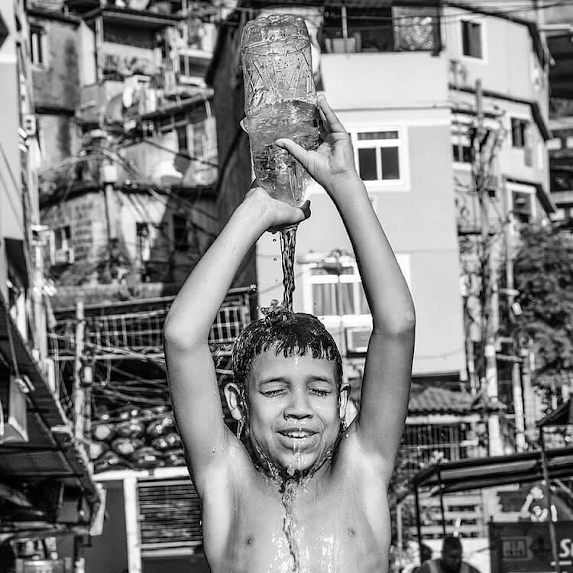
Is the Favela Walking Tour safe?
This is by far the most common question we receive on a daily basis. To make a long story short: Yes, the Favela Walking Tour is safe! We have been providing the Rocinha Favela Tour since 2002, and we only work with local guides who are long-time residents of Rocinha. This means you will be in the hands of people who deeply know the community, its dynamics, and its culture.
From the moment we meet you, we take care of you through every step of the tour, ensuring your safety and comfort. As locals, we are not only familiar with the routes and people but also fully invested in showing you an authentic, respectful, and insightful side of favela life. Your experience will be much more than just sightseeing – it’s an opportunity to engage with local culture in a safe, meaningful way.
Our priority is to ensure you have a fun, enriching experience while feeling secure throughout the entire tour.
If you have any further questions or concerns, don’t hesitate to ask! We’re happy to address them and ensure you feel comfortable before embarking on this unique experience.
Exploring Rocinha: History and the Rise of Favela Tours
Rocinha, located in Rio de Janeiro, Brazil, is the largest and one of the most vibrant favelas in the country. Situated on a hillside overlooking the affluent neighborhoods of São Conrado and Gávea, Rocinha is home to an estimated 70,000 to 100,000 residents. Its history, culture, and the rise of favela tours offer a compelling glimpse into the multifaceted realities of urban life in Brazil.
A Brief History of Rocinha
The origins of Rocinha can be traced back to the early 20th century, when Brazil experienced rapid urbanization. Migrants from rural areas moved to cities like Rio de Janeiro in search of better opportunities, but a lack of affordable housing forced many to settle in informal communities.
Rocinha began as a collection of small, makeshift homes, built by squatters on the steep hillsides of São Conrado. Its name, which means “little farm” in Portuguese, hints at its early days when the area was sparsely populated and primarily agricultural. Over the decades, the community expanded significantly, with the construction of concrete houses stacked on top of one another in a maze of winding streets and alleys.
By the mid-20th century, Rocinha had grown into a densely populated neighborhood with a unique character, defined by its creativity, resilience, and strong sense of community. Despite challenges such as poverty and inadequate infrastructure, Rocinha developed a bustling economy, with residents creating businesses ranging from local shops to art studios.
Favela Tours: A Window Into Rocinha’s Reality

In the 1990s, a new form of tourism began to emerge in Rio de Janeiro: favela tours. These guided visits offer travelers the chance to experience life in communities like Rocinha firsthand. Initially controversial, favela tours have grown in popularity, attracting visitors from around the world.
Purpose and Perspective
Favela tours aim to dispel stereotypes and challenge negative perceptions often associated with these neighborhoods. While the media frequently portrays favelas as centers of crime and poverty, tours highlight their rich culture, artistic expression, and the innovative ways residents overcome daily challenges. Many tours are led by local guides, ensuring an authentic and respectful representation of their community.
Activities and Highlights
- Walking Tours: Visitors navigate Rocinha’s narrow alleys, visit local markets, and observe everyday life up close.
- Cultural Experiences: Tourists are introduced to Rocinha’s vibrant art scene, including murals, handmade crafts, and music.
- Community Projects: Some tours include stops at schools, workshops, or non-profits where visitors can learn about initiatives aimed at improving education, health, and sustainability.
- Panoramic Views: From Rocinha’s upper levels, the breathtaking view of Rio de Janeiro’s coastline offers a striking contrast between the favela and its surrounding luxury neighborhoods.
Challenges and Ethical Considerations
While favela tours have helped bridge cultural gaps and provide income to local guides, they are not without criticism. Critics argue that such tours risk turning poverty into a spectacle. To address these concerns, responsible tourism practices emphasize collaboration with the community and reinvestment into local projects.
Tour operators who follow ethical guidelines:
- Involve residents in planning and decision-making.
- Support local businesses during tours.
- Educate visitors about the challenges and achievements of the community.
For tourists, the key is to approach the experience with respect and an open mind, avoiding voyeuristic attitudes and instead focusing on learning and cultural exchange.
Rocinha Today
Rocinha remains a dynamic and ever-evolving community. While challenges persist, including issues with infrastructure and public services, the people of Rocinha continue to showcase incredible resilience and creativity. Favela tours have become an avenue for Rocinha to share its story with the world, fostering greater understanding and breaking down prejudices.


You must be logged in to post a comment.